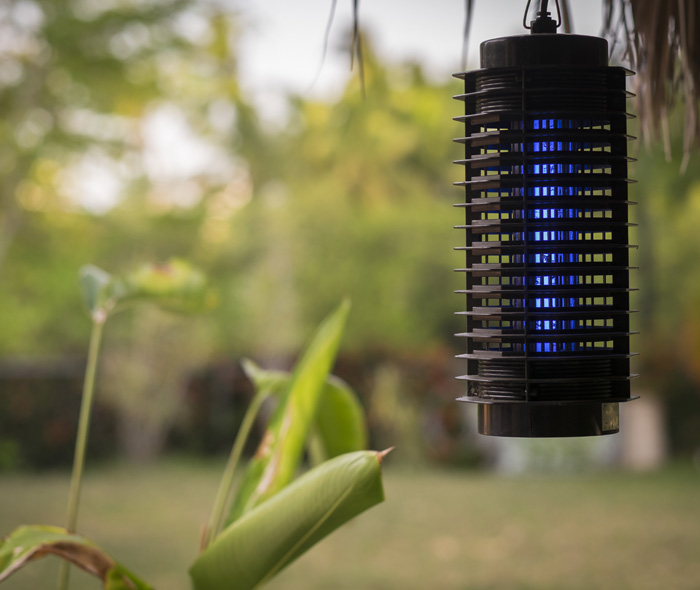Explore the world of fragrance on Misthree’s Blog. Discover articles and stories of fragrance, water-based innovations, and more.
There are various types of solutions to prevent mosquito bites, including
Insect repellents are products that are designed to keep mosquitoes and other insects away from the skin. Mosquito repellents work by creating a barrier between your skin and the mosquitoes. They contain chemicals like DEET, picaridin, PMD or other active ingredients that mosquitoes find unpleasant, and these chemicals help to repel the mosquitoes.
Mosquito repellents are relatively easy to apply, and they come in different forms, such as sprays, lotions, and creams. They are also readily available at drugstores, supermarkets, and outdoor stores, making them a convenient option for anyone who wants to protect themselves from mosquito bites.
Mosquito wristbands and patches are typically marketed as a convenient and easy-to-use alternative to traditional mosquito repellents, but they are generally not as effective at preventing mosquito bites for several reasons:
Overall, while mosquito wristbands and patches may be a convenient option for short-term outdoor activities, they are generally not as effective as traditional mosquito repellents for long-term or high-risk mosquito exposure situations.


Set up the mosquito net – If you have a hanging mosquito net, hang it from the ceiling or use hooks to suspend it from the walls. If you have a self-standing mosquito net, assemble it according to the instructions provided.
Tuck in the edges of the mosquito net – Tuck the edges of the mosquito net under your mattress or sleeping mat to prevent mosquitoes from entering the net from underneath.
Use the mosquito net every night – Use the mosquito net every night when you sleep to protect yourself from mosquito bites.
Maintain the mosquito net – Regularly check the mosquito net for any holes or damage and repair them as necessary. Wash the net with soap and water or as directed on the label.
By following these steps, you can effectively use a mosquito net to protect yourself from mosquito-borne diseases.
Mosquitoes require stagnant water to breed, so eliminating standing water sources around your home can be an effective way to control mosquito populations. Here are some steps you can take to eliminate mosquito breeding sites:
Remove standing water: Empty out any standing water around your home, such as in flower pots, buckets, and bird baths. Check for any standing water in areas such as clogged gutters, blocked drains, and unused swimming pools, and ensure they are drained or cleaned.
Cover water containers: If you have outdoor containers that must hold water, such as rain barrels or water tanks, make sure they are covered with mosquito-proof netting or tightly sealed lids.
Keep drains clear: Keep your home’s drains free of blockages to prevent standing water, including inside and outside your house.
Maintain your yard: Remove any piles of debris, such as leaves or grass clippings, as these can provide a moist environment for mosquitoes to breed in. Keep your lawn mowed and trim any overgrown vegetation.
Use mosquito dunks: Mosquito dunks are a form of biological control that release a bacterium that kills mosquito larvae. They can be placed in stagnant water sources such as ponds, fountains, and rain barrels.
Repellent vaporizers are devices that emit a synthetic chemical or natural plant-based repellent into the air to repel mosquitoes. They work by creating an invisible barrier that mosquitoes find unpleasant and avoid.
The effectiveness of electric mosquito repellents can vary depending on the type of device and the repellent used. Some studies have found that they can reduce mosquito bites in a small area, such as a room or patio, but they may not be effective in larger outdoor areas.
It’s important to note that not all repellent vaporizers are created equal, and some may be more effective than others. Additionally, some people may find that they are more attractive to mosquitoes than others, so even the most effective repellents may not work for everyone.
Overall, repellent vaporizers can be a useful tool in a comprehensive mosquito control strategy, but they should not be relied upon as the sole means of protection. Other measures, such as wearing protective clothing and using mosquito nets, and applying mosquito repellent may also be necessary to effectively prevent mosquito bites.
Electric high frequency repellent devices, also known as ultrasonic pest repellers, claim to repel pests such as mice, rats, insects, and other small animals using high frequency sound waves that are inaudible to humans.

However, the effectiveness of these devices is a matter of debate among researchers and pest control experts. Some studies have shown that ultrasonic devices can be effective in deterring certain pests, while others have found little to no evidence that they work.
One reason for the mixed results may be that the effectiveness of ultrasonic devices can vary depending on factors such as the type of pest, the size and layout of the area being treated, and the quality of the device itself.
Additionally, some pests may become habituated to the sound waves over time, making the devices less effective in the long term.
Overall, it’s unclear whether electric high-frequency repellent devices are consistently effective in repelling pests. If you’re dealing with a pest infestation, it’s generally best to consult a professional pest control service for the most effective and reliable solutions.
Stay up to date witth our latest news, updates and special offers